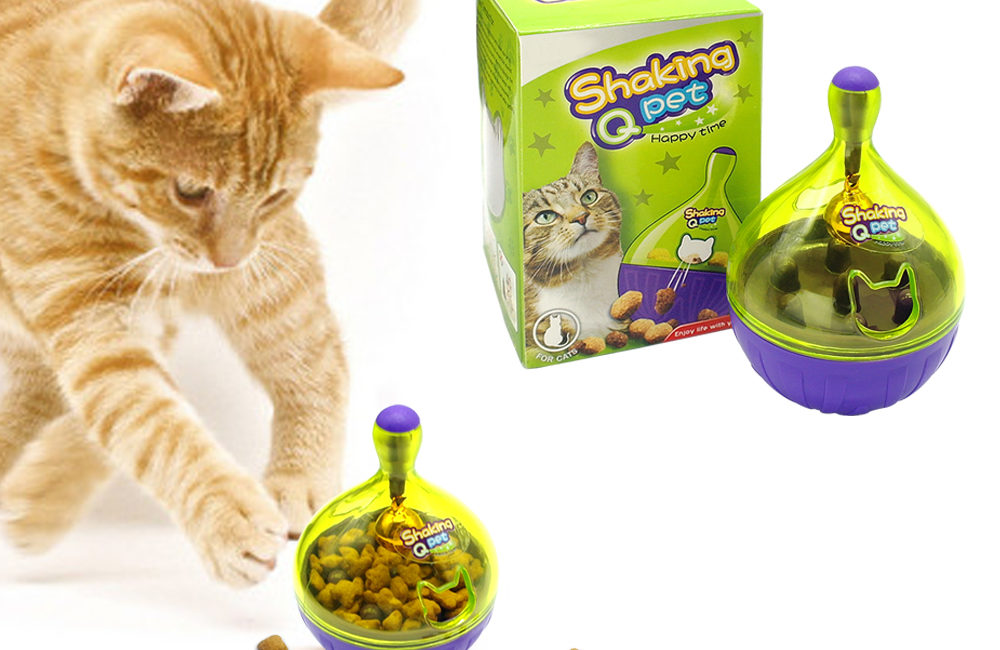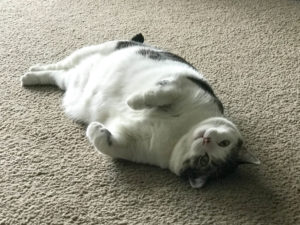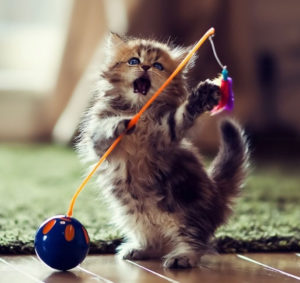Food Issues and Felines

Has your kitty gone from “pleasingly plump” to frighteningly fat? And if so, why?
Does the term “polyphagia” sound familiar? If not, it’s a medical condition that causes a cat to increase her food intake to the extent that she seems ravenous most of or all of the time. Since polyphagia can be either behavioral or physical in nature, it’s vital to determine which of the two is affecting your particular kitty.
The simplest way is starting at home – to see whether you’re simply over-feeding her.
Since most healthy adult cats require only one or two meals a day, use measuring scoops (follow the serving size recommended on the tin or packaging) to refill her bowl and feed her on a fixed schedule – despite her many initial meows of protest.
Although she may be eating a great deal, she may not be getting enough essential nutrients. If this is the case, change to a higher quality cat food, one that provides her with the vitamins and minerals she needs to stay healthy – and lean.
Use a slow feeding bowl – their bumps make it more difficult for kitty to reach her food, forcing her to eat more slowly. And if your cat is one who eats when she’s bored, a slow feeding bowl will provide her with the added benefit of some much-needed stimulation.
Turn mealtime into a game by purchasing one of a wide variety of feeding toys that automatically dispenses food as your cat plays with it. Not only does this limit the amount of food she eats but it also encourages her natural prey drive and affords her the chance at some additional exercise.
If your cat is either lonely or stressed (some cats will habitually beg for food as a means of attracting their owners’ attention), alleviate these feelings by devoting at least 15 to 20 minutes a day to actively play, play, playing with her.
If, on the other hand, the reason behind her overeating is medical, among the various possible culprits are diabetes mellitus, hyperthyroidism, certain medications, and impaired digestion and absorption of nutrients. But to make the proper determination, a visit to your vet is essential.
As with any other suspected condition, the first step will be a thorough physical examination of your cat augmented by extensive blood and urine tests. A blood count enables your vet to evaluate her thyroid levels, examine her blood for the presence of infectious agents, and to see if she’s suffering from anemia or any inflammation in her blood vessels. Abnormally low blood sugar (hypoglycemia) may also be found – possibly the result of insulin-producing tumors that interfere with the proper functioning of her pancreas. A complete urinalysis will show if there’s an infection in her urinary tract, an infection of the organs involved in waste elimination or if sugar is present in her urine — commonly found in cats with diabetes.
Should these tests prove inconclusive, however, your vet may suggest x-rays of her thorax and abdomen and, possibly, an endoscopy. This procedure involves inserting a tube through your kitty’s mouth and into the hollow cavity of her stomach to take tissue samples from her stomach and small intestine.
Once the cause of her condition has been diagnosed, your vet will provide you with an at-home treatment plan to follow going forward. Examples: Diabetes mellitus can usually be managed by a combination of insulin and a special diet. Gastrointestinal conditions such as exocrine pancreatic insufficiency may respond to dietary changes and oral medications. Hyperthyroidism can be treated with medication, radioactive iodine therapy, diet, or surgery to remove the thyroid gland, while impaired digestion or absorption caused by gastrointestinal disease may be controlled through medications and dietary changes.
But if kitty’s polyphagia doesn’t improve or worsens, schedule an appointment with your vet to have her re-evaluated.



